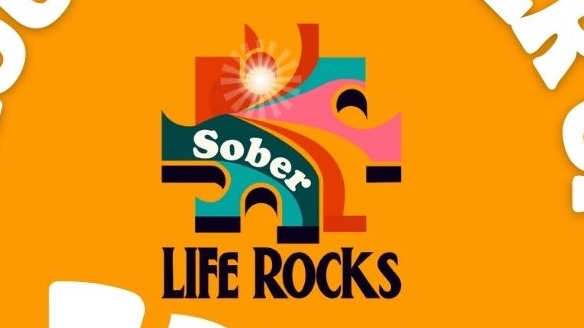Are you an organizer trying to plan an inclusive sober-friendly event? Sober Life Rocks co-founder Laura Nelson tells you everything you need to know in her new book.

The new year is here, and with it comes a renewed focus on wellness, connection, and fresh starts. As Dry January kicks off, with 35% of U.S. adults participating last year and nearly 30% abstaining from alcohol altogether, event planners and hosts are rethinking how to create gatherings that truly welcome everyone.
Inclusive, sober-friendly events are no longer just a trend—they’re quickly becoming a standard for fostering meaningful connections and ensuring that all attendees feel valued. Laura Nelson, co-founder of Sober Life Rocks and author of the newly released , is leading this movement with practical strategies that are transforming how we gather in 2025.
The start of the year is a time for reflection and setting intentions. For many, this includes focusing on health, mindfulness, and building connections. Alcohol-centric events can unintentionally exclude those who are prioritizing these goals, particularly during Dry January.
“Inclusive events aren’t just about offering alternatives to alcohol,” says Laura Nelson. “They’re about creating spaces where everyone feels welcome, respected, and connected.”
Looking to elevate your next gathering? Here are a few actionable tips from Laura Nelson that you should try to ensure your events are inclusive, engaging, and fun for all attendees:
Mocktails are no longer boring! Delight your guests with creative, alcohol-free beverages that are as festive as their traditional counterparts. Two simple recipes to try:
• Cucumber Cooler: A refreshing blend of ginger beer, fresh lime juice, and soda water.
• Berry Smash: A vibrant mix of fresh berries, lime juice, simple syrup, and soda water.
These drinks are perfect for Dry January and can set a celebratory tone for any gathering.
Ditch the typical happy hour vibe and introduce activities that foster interaction and engagement:
• Mocktail-Making Stations: Let guests get creative with their own alcohol-free drinks.
• DIY Workshops: From crafting to cooking, hands-on activities are a hit.
• Wellness Corners: Offer spaces for meditation, chair massages, or even yoga sessions.
Interactive options create opportunities for attendees to connect in ways that go beyond casual conversation.
Consider the physical and emotional layout of your event:
• Include quiet spaces where guests can hold meaningful conversations.
• Arrange seating to encourage small-group discussions.
• Avoid designs that revolve around a central bar, shifting the focus to connection rather than consumption.
Inclusive events don’t just benefit attendees—they reflect the values of thoughtfulness, wellness, and connection that define a modern host or planner. Whether you’re organizing corporate gatherings, networking events, or personal celebrations, embracing inclusive practices can create a more meaningful experience for everyone involved.
If you’re ready to transform how you plan events in 2025, Laura Nelson’s new book, The Inclusive Event Planner: A Quick Guide to Planning Sober-Friendly Conferences That Boost Attendance, is your go-to guide. Packed with practical advice, creative ideas, and actionable tips, it’s perfect for event planners, HR professionals, and anyone looking to host impactful gatherings.
Visit Sober Life Rocks to learn more and explore additional resources for creating engaging, inclusive events.
Start the year right—plan gatherings that uplift, connect, and inspire. Together, let’s make 2025 the year of inclusivity and connection!
